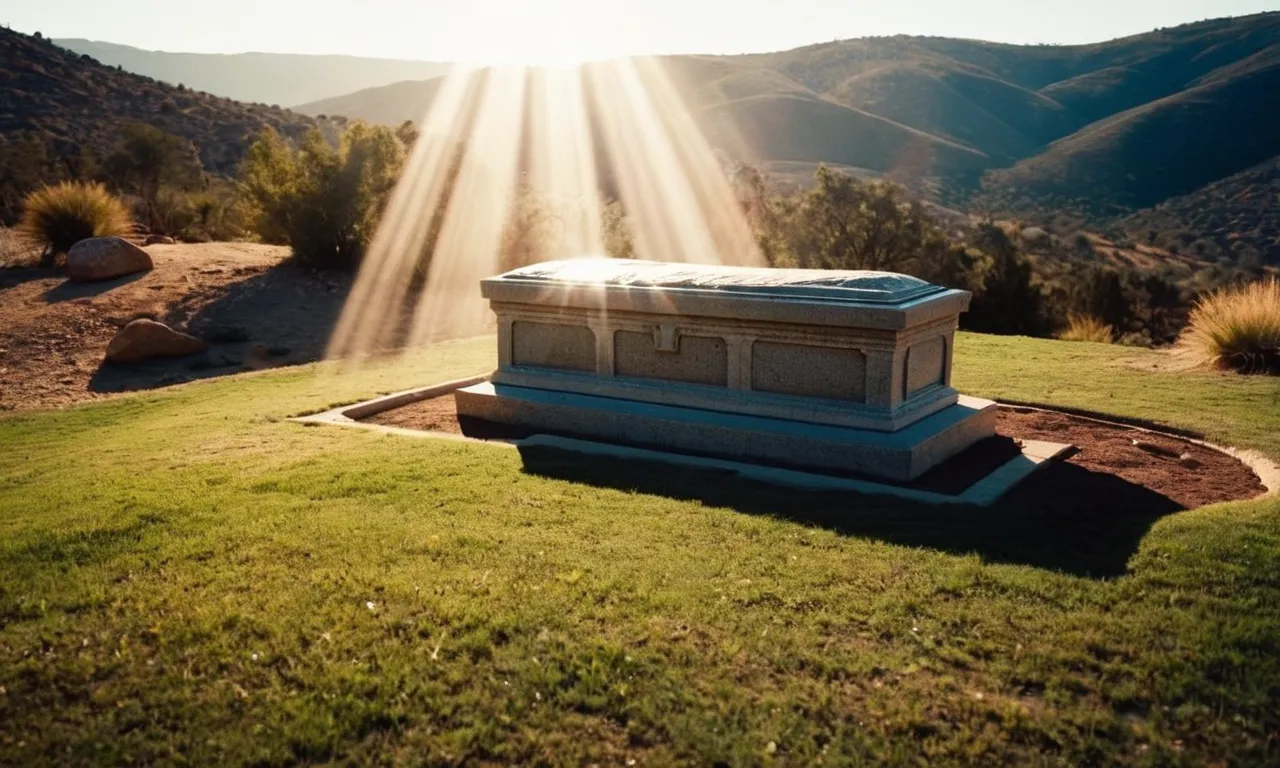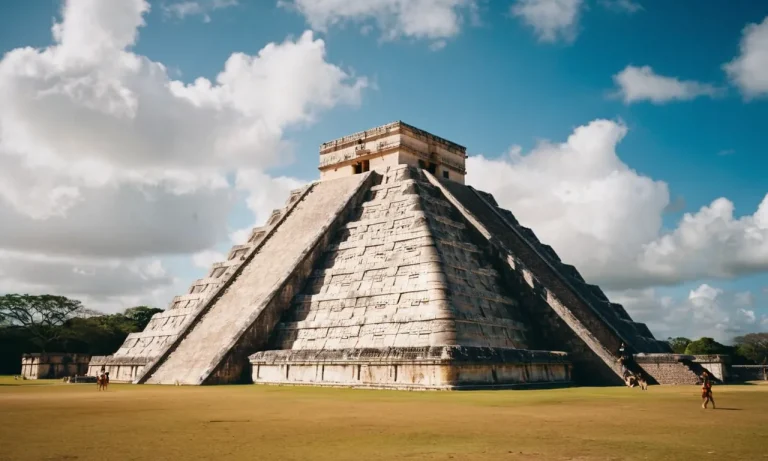Why Was Jesus Resurrected: A Detailed Explanation
The story of Jesus’ resurrection is central to Christianity. But why exactly did Jesus rise from the dead three days after his crucifixion?
If you’re short on time, here’s the key point: Jesus was resurrected to demonstrate his power over death and prove that he was the Son of God.
In this comprehensive article, we’ll examine the theological and historical reasons behind Jesus’ resurrection. We’ll look at Old Testament prophecies, Jesus’ teachings foretelling his resurrection, and the importance of this event in proving Jesus’ divinity.
Old Testament Prophecies Pointed to Jesus’ Resurrection
Prophecies in Psalms and Isaiah
Several Old Testament verses prophesied the resurrection of the Messiah. Psalm 16:10 says, “For you will not abandon my soul to Sheol, or let your holy one see corruption.”
This verse predicts that God’s Holy One, the Messiah, would not remain dead or undergo decay in the grave.
Acts 2:25-32 applies this prophecy to Jesus and his resurrection.
Another resurrection prophecy comes from Isaiah 53:11 – “Out of the anguish of his soul he shall see and be satisfied; by his knowledge shall the righteous one, my servant, make many to be accounted righteous, and he shall bear their iniquities.”
Though treated harshly and killed, God’s servant sees life again and accomplishes God’s redemptive plan, pointing ahead to Jesus.
Connections Between Jonah and Jesus’ Death and Resurrection
Interestingly, Jesus himself drew a comparison between his coming death and resurrection and the experience of the prophet Jonah.
After predicting his own death, Jesus said, “For just as Jonah was three days and three nights in the belly of the great fish, so will the Son of Man be three days and three nights in the heart of the earth” (Matthew 12:40).
So the period Jonah spent inside the fish was seen as a foreshadowing of the time Jesus would spend buried in the earth before being raised again. Jesus brought a greater salvation message than Jonah, making these parallels very appropriate.
Jesus Himself Prophesied That He Would Rise Again
Jesus’ Direct Teachings on His Coming Resurrection
Throughout His ministry, Jesus made several predictions that He would die and three days later be resurrected, as recorded in the Gospels (Matthew 16:21, Matthew 17:22-23, Matthew 20:18-19).
For example, after Peter declares Jesus as the Messiah, Jesus plainly tells the disciples that He “must go to Jerusalem and suffer many things from the elders, chief priests and teachers of the law, and that he must be killed and on the third day be raised to life” (Matthew 16:21).
The threefold prediction has details matching the events surrounding Jesus’ trial, crucifixion, burial, and subsequent resurrection appearances.
Parables and Imagery Depicting Jesus’ Death and Resurrection
In addition to direct statements of His resurrection, Jesus used parables and vivid analogies that clearly allude to His death and rising to life again.
For instance, Jesus likened his impending death and resurrection to Jonah who spent three days and nights in the belly of a huge fish (Matthew 12:40).
Another clear analogy is when Jesus said, “Destroy this temple, and I will raise it again in three days” (John 2:19), speaking of His body.
These prophetic images foreshadowed how Jesus would be buried after His death but would conquer the grave victoriously.
The Resurrection Fulfilled God’s Promise of Eternal Life
The resurrection of Jesus Christ is central to the Christian faith. As the Apostle Paul states, “If Christ has not been raised, your faith is futile; you are still in your sins” (1 Corinthians 15:17).
The resurrection fulfilled God’s promise of eternal life for those who believe in Jesus. Here are some key reasons the resurrection was necessary to accomplish God’s salvific plan:
The resurrection conquered death
Death entered the world through Adam’s sin. God warned Adam that if he ate the forbidden fruit he would “surely die” (Genesis 2:17). Adam did eat, and death spread to all humanity as a consequence of sin (Romans 5:12).
Jesus came to destroy the power of death and redeem humanity from its grasp (Hebrews 2:14-15).
By rising from the dead, Jesus broke the power of death and opened the door for eternal life for all who put their faith in Him.
The resurrection completed Christ’s earthly mission
According to the Scriptures, Christ came to be the perfect sacrificial Lamb who would take away the sins of the world (John 1:29). His death on the cross served as atonement for sin, but more was required.
As Paul explains, “He was delivered over to death for our sins and was raised to life for our justification” (Romans 4:25).
Christ’s resurrection validated His sinless life and sacrifice, proving He had overcome sin’s penalty, which allowed God to justify and redeem all who believe.
The resurrection validates Jesus’ divine nature
The resurrection provides confirming evidence that Jesus is the Son of God. Paul states that Jesus “was declared with power to be the Son of God by his resurrection from the dead” (Romans 1:4).
His victory over death displayed His divine nature and authority over all creation.
Only God has the power to raise the dead. The resurrection was a public affirmation by God of Christ’s true identity and sovereignty over all things.
The resurrection ensures believers will also be raised
Christ’s resurrection guarantees that those who believe in Him will also rise from the dead.
Paul argues, “if the Spirit of him who raised Jesus from the dead dwells in you, he who raised Christ Jesus from the dead will also give life to your mortal bodies” (Romans 8:11).
Because Christ defeated death, believers are spiritually united with Him in eternal life. His resurrection power works in us as a pledge that we too will be resurrected.

The Resurrection Validated Jesus’ Identity as the Son of God
The Resurrection Showed Jesus’ Power Over Death
When Jesus was resurrected, it demonstrated His supernatural power over death itself. As the Son of God, Jesus had the authority to lay down His life and take it up again (John 10:18). His resurrection backed up His amazing claim to be the resurrection and the life (John 11:25-26).
If Jesus had remained dead after the crucifixion, it would have proven He was just an ordinary human. But the fact that He rose from the grave on the third day revealed His divine identity and confirmed He truly was the Son of God with mastery over life and death.
- Jesus predicted His own death and resurrection multiple times before it happened (Mark 8:31; John 2:19-21). The fact it occurred just how He said it would strongly validates His authority and identity.
- The eyewitness testimony in the Gospels about Jesus appearing alive again only days after a brutal execution clearly distinguishes Him from all other world and religious leaders.
The Importance of the Resurrection for Christian Theology
Basis for Salvation and Redemption
The resurrection of Jesus is vital to Christianity and a core belief of the faith. As the Apostle Paul stated, “If Christ has not been raised, your faith is futile; you are still in your sins” (1 Corinthians 15:17).
The resurrection provides the basis for salvation and redemption in several key ways:
- It demonstrates Jesus’ power over sin and death, making salvation possible. His resurrection was the conquest of sin and opened the gateway for the redemption of humanity (Romans 4:25).
- It confirms that God accepted Jesus’ sacrifice on the cross as atonement for sins. Had Jesus only died, His death would have had no more saving power than the death of any other person. But the resurrection proves God’s stamp of approval (Romans 1:4).
- It gives hope for a future resurrection and eternal life for believers. Just as God raised Jesus from death, so He promises to raise up at the last day those who trust in Him (1 Corinthians 15; John 11:25-26).
Without the resurrection, Christianity could offer no viable path to salvation or hope of an afterlife. As Paul emphasizes, the resurrection is the “firstfruits” and guarantee of final victory over death for those who put their faith in Christ (1 Corinthians 15:20-23).
Proof of Jesus’ Divinity and the Truth of Christianity
The resurrection also serves as perhaps the greatest proof of Jesus’ divinity and the truth of His teachings. By raising Himself from the grave, Jesus displayed authority over life and death that belongs to God alone (John 10:18).
In addition, the resurrection authenticates Jesus’ status as the Son of God and His message about the Kingdom of God.
In the words of Paul, it “designated him Son of God in power” (Romans 1:3). Christianity is rooted in the eyewitness accounts of His resurrection appearances to the disciples, women followers, and even skeptics like Thomas who doubted (John 20:24-29).
Had these witnesses not seen the risen Christ, they would likely have scattered and the Christian faith would have died out under the weight of Jesus’ death.
Finally, the fact that Jewish religious authorities could neither produce Jesus’ body nor disprove His resurrection despite strong motivation to do so, points to the reality of this miraculous event. Both Roman and Jewish sources acknowledged the truth that the tomb was empty on that first Easter morning (Matthew 28:11-15).
Conclusion
In the end, Jesus’ resurrection lays at the very heart of the Christian faith. This miraculous event fulfilled ancient prophecies about the Messiah, proved that Jesus was the Son of God with power over death, and provides the basis for the redemption and salvation offered in Christianity.
Without the resurrection, the Christian faith would be meaningless. But Jesus’ rising from the grave on the third day substantiated his identity and teachings – establishing the truth of Christianity for all time.








